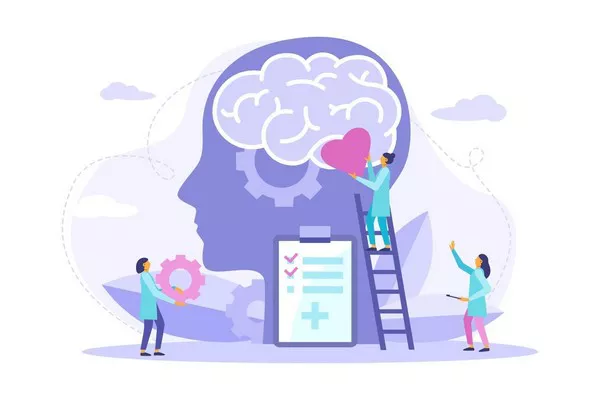A new study reveals that sleep deprivation can significantly hinder the brain’s capacity to suppress unwanted memories and intrusive thoughts, with potential implications for mental health.
Researchers at the University of York, in collaboration with the University of East Anglia, have found that a lack of sleep disrupts the prefrontal cortex’s ability to block the retrieval of memories that would otherwise be suppressed. This research sheds light on how sleep plays a crucial role in memory regulation, particularly in managing distressing memories.
Dr. Scott Cairney from the University of York, who led the study, explained that our brains have a natural mechanism for suppressing unwanted memories. This suppression works by weakening the neural connections that form a memory, preventing us from recalling the entire experience when triggered by external stimuli. However, the study suggests that without sufficient sleep, the brain struggles to execute this process effectively.
“Suppression is a sophisticated function of the brain that weakens the connections of the memory, making it harder to retrieve the full experience when reminded of it,” Dr. Cairney said. “But our research shows that the brain’s ability to suppress these memories relies on adequate sleep.”
To explore this mechanism, the team used functional magnetic resonance imaging (fMRI) to study the brain activity of 85 healthy adults. The participants were split into two groups: one that had a full night’s sleep in a sleep lab and another that stayed awake for an entire night. Both groups were then shown faces they had previously seen paired with emotionally charged images, such as a car crash or a fight. Participants were asked to either recall or suppress the associated memories.
The results revealed a stark contrast between the two groups. Those who had slept showed significantly greater activation in the right dorsolateral prefrontal cortex, a brain area responsible for managing thoughts, emotions, and actions. This was particularly noticeable during attempts to suppress the associated memories. Conversely, the sleep-deprived participants showed diminished activation in this area, indicating that their brains struggled to control the retrieval of unwanted memories.
Additionally, the study found that the well-rested participants exhibited reduced activity in the hippocampus, the brain region involved in memory retrieval. This reduction suggested that they were effectively “shutting down” the retrieval process responsible for triggering intrusive thoughts.
One interesting finding was that participants who experienced more rapid eye movement (REM) sleep were better able to engage the prefrontal cortex during memory suppression. This suggests that REM sleep may play a key role in maintaining the brain’s ability to prevent distressing memories from entering conscious thought.
Dr. Cairney emphasized the significance of these findings for mental health. “Sleep-deprived participants were unable to activate the brain area that helps suppress intrusive memories, resulting in the continued activation of the hippocampus and the emergence of distressing thoughts,” he said.
He further noted that this research could be particularly relevant to individuals with mental health conditions, such as anxiety, depression, or post-traumatic stress disorder (PTSD), who often struggle with both memory suppression and sleep disturbances. “By understanding how sleep impacts the brain’s ability to manage negative memories and thoughts, we may be able to develop more targeted treatments and behavioral therapies. These interventions could improve sleep quality, helping the brain to perform its natural function of memory suppression and, ultimately, supporting mental well-being.”
The study highlights the critical relationship between sleep and mental health, suggesting that better sleep could be a key factor in managing intrusive thoughts and improving overall mental resilience.
You Might Be Interested In:
-
Early Bilateral Oophorectomy Tied to Elevated Alzheimer’s Disease Risk in Women
-
New Guidelines for Premature Ovarian Insufficiency Diagnosis and Management Unveiled
-
2024 Guidelines: Diagnosis & Management of Premature Ovarian Insufficiency

